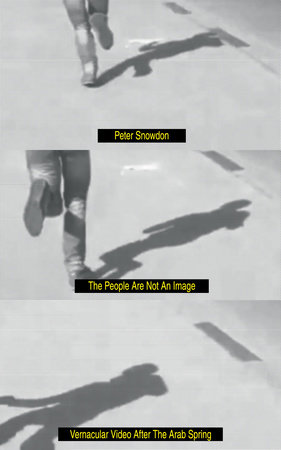

The People Are Not an Image
By Peter Snowdon
By Peter Snowdon
By Peter Snowdon
By Peter Snowdon
Category: Art | Philosophy
Category: Art | Philosophy

-
$34.95
Sep 29, 2020 | ISBN 9781788733168
-
Sep 29, 2020 | ISBN 9781788733199
YOU MAY ALSO LIKE

House M.D. vs. Reality

Revenge of the Sith: Illustrated Screenplay: Star Wars: Episode III

Two Generals

The Explorer’s Guide to Drawing Fantasy Creatures

Million Dollar Website

Che Guevara

Wikinomics

The Theory of the Leisure Class
Praise
“Peter Snowdon has mapped out the topography of a hidden treasure, drawing our attention to the videos of Arab revolutions as what he calls the ‘vernacular anarchive’ of a momentous historic event otherwise withering away in the speed of post-truth amnesia. This is a revelatory book, indispensable for our understanding of what happened in the course of the Arab Revolutions when we were not paying proper attention.”
—Hamid Dabashi author of The Arab Spring: The End of Postcolonialism
“With The Uprising, a feature-length compilation of cell phone videos from the Arab revolutions, Peter Snowdon produced one of the great, if shamefully unknown, film works of the still young twenty-first Century. Revisiting his source material with admirable lucidity, the essays in The People Are Not an Image constitute a no less crucial and forward-looking work of cinematic exegesis. Together they represent a key development in the history of collective image-making.”
— J. Hoberman, author of Make My Day: Movie Culture in the Age of Reagan and Film After Film: (Or, What Became of 21st Century Cinema?)
“The anonymous videos of the 2010-2012 Arab uprisings, as reframed by this powerful and graceful book, are not documents of past events but performances that continue to live as they circulate online. Snowdon honors the videos as aesthetically complex works that, in the manner of a spiritual devotion, bring into being a collective body—one that just might burst the state’s cruel grip.”
—Laura U. Marks, author of Hanan al-Cinema: Affections for the Moving Image and Enfoldment and Infinity: An Islamic Genealogy of New Media Art
“Journalist, scholar, filmmaker, and maverick thinker, Peter Snowdon has written a fascinating and penetrating analysis of the Arab Spring’s ‘vernacular videos’ and their emancipatory function, offering illuminating insights that are likely to shake up cinema theory today much as these videos once cracked open the Arab world.”
—Deirdre Boyle, Associate Professor of Media Studies, The New School and author of Subject to Change: Guerrilla Television Revisited
“Snowdon combines narratives of personal encounters, without which no tale of a revolution can be complete, with a sophisticated analysis of the ways of seeing a complex, fast moving reality, and contemporary critical analysis. Combining the experience of filmmaking and the everyday dialectics of rebellion during the Arab uprisings of 2011, this book should appeal to anyone interested in the relation between image and protest, street and screen, ordinary life and extraordinary mobilization, feeling of personhood and sense historical relevance, and subjectivity in times of revolution.”
—Mohammed Bamyeh, author of Social Sciences in the Arab World and Anarchy as Order
“Throughout the book, Snowdon practices an ethics of close reading that rejects critical habits of regarding images with suspicion. The People Are Not an Image charts hopeful trajectories for several areas of inquiry, from the politics of protest media and self-representation to networked distribution, operational images, and the digital remaking of subjectivity. Yet Snowdon’s ultimate project is more ambitious—to reshape his readers’ political imaginaries”
—Sasha Crawford-Holland, Critical Inquiry
“Peter Snowdon provides a radical philosophical approach to the daily videos produced by the ordinary people of the Arab spring.”
—Habib A. Moghimi, Visual Studies
“The People Are Not an Image has significance for scholars but will also find wider audience appeal with, for example, digital media activists, filmmakers, and human rights advocates. It will be especially relevant to digital media and communication scholars and students with an interest in activism, social movements, and visual politics.”
—Kelly Lewis, E-International Relations
“This book makes a much-needed intervention in media studies in the Arab regions since 2011, and is a crucial read for all students of media and film studies.”
—Zaher Omareen, Screen
21 Books You’ve Been Meaning to Read
Just for joining you’ll get personalized recommendations on your dashboard daily and features only for members.
Find Out More Join Now Sign In












